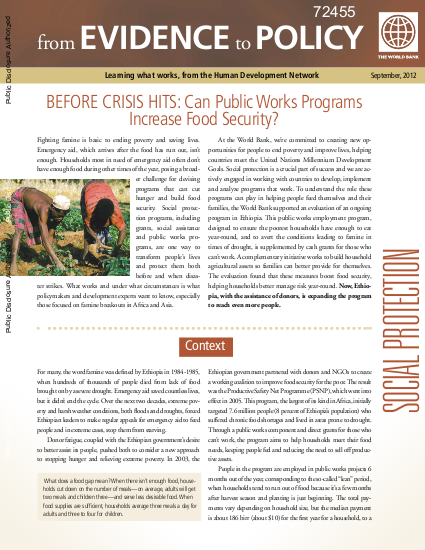
Fighting famine is basic to ending poverty and saving lives. Emergency aid, which arrives after the food has run out, isn’t enough. Households most in need of emergency aid often don’t have enough food during other times of the year, posing a broader challenge for devising programs that can cut hunger and build food security. Social protection programs, including grants, social assistance and public works programs, are one way to transform people’s lives and protect them both before and when disaster strikes. What works and under what circumstances is what policymakers and development experts want to know, especially those focused on famine breakouts in Africa and Asia. At the World Bank, we’re committed to creating new opportunities for people to end poverty and improve lives, helping countries meet the United Nations Millennium Development Goals. Social protection is a crucial part of success and we are actively engaged in working with countries to develop, implement and analyze programs that work. To understand the role these programs can play in helping people feed themselves and their families, the World Bank supported an evaluation of an ongoing program in Ethiopia. This public works employment program, designed to ensure the poorest households have enough to eat year-round, and to avert the conditions leading to famine in times of drought, is supplemented by cash grants for those who can’t work. A complementary initiative works to build household agricultural assets so families can better provide for themselves. The evaluation found that these measures boost food security, helping households better manage risk year-round. Now, Ethiopia, with the assistance of donors, is expanding the program to reach even more people.